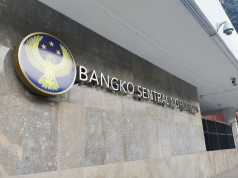
The Philippines’ growing cryptocurrency industry is the new target of hackers.
Cybersecurity firm Kaspersky stated this based on recent data showing the Philippines as the second most-hit country in Southeast Asia by cryptocurrency-related cyber-attacks in 2022.
In the data accumulated in 2022, the company detected 24,737 crypto-related phishing attacks in the Philippines, thus naming the attack as “crypto-phishing.”
This was a jump to the 9,164 attacks Kaspersky detected on Filipino users in 2021.
The Philippine National Police’s Anti-Cybercrime Group (PNP-ACG) also warned the public about a similar scheme last December.
The group made the public aware of the presence of fake cryptocurrency applications that target employees receiving Christmas bonuses.
Filipinos who are interested in investing their money in digital assets should first see if a provider called a Virtual Asset Service Provider (VASP) is regulated by the Bangko Sentral ng Pilipinas (BSP).
READ: PNP-ACG warns public about fake crypto app targeting Christmas bonus recipients
The Philippines, however, is only second to Vietnam on the receiving end of crypto-phishing hackers.
The latter bear the brunt of 64,080 crypto-phishing attacks in the same year, thus making it the most targeted country in Southeast Asia.
Vietnam dealt with far higher attacks in 2021. Kaspersky detected 75,816 crypto-phishing attacks among its users there during that year.
Adrian Hia, managing director for Asia Pacific at Kaspersky, told reporters during a product launch that hackers have become more “sophisticated” than before.
“There’s no boundaries. Any form of touch they (hackers) have the capability to have a malware install,” Hia said.
The executive also pointed out that the figures showed the shift of cybercriminals from malware, which is still prominent, to the cryptocurrency market in Southeast Asian countries.
On other cyber threats
Kaspersky, meanwhile, found a 54% downward trend in mobile malware in the Philippines—from 34,010 in 2021 to 15,372 in 2022.
This dip is also observed in all countries in Southeast Asia, except Singapore.
Overall, emerging types of threats to online users in 2022 are:
- Advanced stealers that target accounts of gaming platforms
- Cryptocurrency wallets
- Stalking platforms where perpetrators can spy on a victim’s private life via smartphones
In a separate statement, Hia emphasized the need to install a better cybersecurity infrastructure to “live digital lives with confidence.”
“It is therefore important for users to have the answers to all possible scenarios, so they can carry on living their digital lives with confidence – whether it’s ‘farming gold’ in their favorite MMORPG, introducing kids to their first tablet, arranging a video call for senior members of the family or simply looking to explore and try the next big thing like building a smart home or taking a tour of the ‘metaverse’,” he said.









